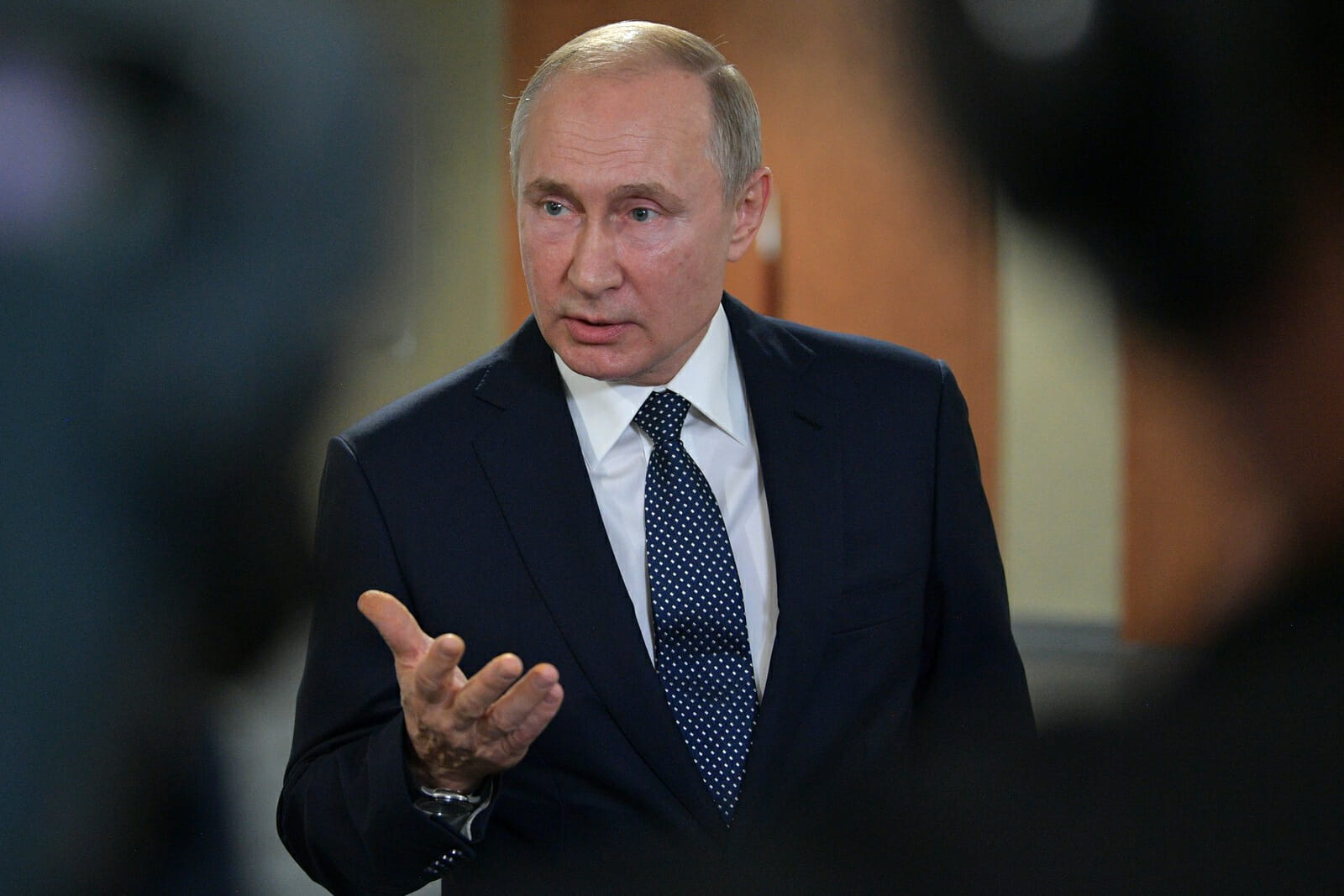
Media
The Dark Side of Putinology
Facing the invisible enemy of the coronavirus pandemic, even Vladimir Putin has been forced to make do with sombre press conferences. This newfound reticence poses a problem for the countless politicians, reporters, and tycoons who have come to see Putin as both a convenient bogeyman to take the blame for the world’s ills and a shortcut to fame and fortune.
An entire cottage industry of pundits has sprung up in recent years, specialising in interpreting Putin’s every move and attributing elaborate plots to his cunning—often based on scant evidence or unreliable sources. Even the most acclaimed reporting on Russia increasingly tells the Putin legend that people want to hear, rather than the one backed up by hard proof.
All the president’s men
A case in point: former Financial Times Moscow correspondent Catherine Belton has raked in praise for her recent book, Putin’s People, which The Guardian noted: “reads like a John le Carré novel.” Belton’s Putin is at once a KGB thug—contrary to the conventional wisdom that Putin was an undistinguished bureaucrat, she draws on anonymous sources to link Putin directly to a spate of bombings and kidnappings—and a brilliant puppet master, using “black cash” to pull the strings of Western politics, a real demon.
Belton gives lip service to the greatest hits of Putin lore, including an entire chapter on the cultivation of Donald Trump. She does so more convincingly than most Russiagate pundits, steering clear of the Steele dossier’s more lurid (and controversial) allegations and stopping just short of suggesting that Trump was Putin’s Manchurian candidate. Thanks to Belton’s extensive list of sources, one reviewer proclaimed that “she succeeds in legitimizing certain truths which have long been the preserve of fringe oppositionists.”
Belton doesn’t quite succeed in legitimizing these theories, however, because some of her sources are fatally flawed. Many of the Russian elites Belton interviewed have defined themselves in relation to the Putin myth they helped create, casting themselves either as the Russian president’s staunchest supporters or his bitterest enemies to serve their own ends.
The convenient dissident
Sergei Pugachev, with whom Belton begins her book, is perhaps the most egregious example of this. Pugachev left Russia after he was accused of siphoning funds from Mezhprombank and intentionally bankrupting it. Though Pugachev now tries to position himself as a victim of Putin’s revenge, he still relishes his role in one of the most oft-repeated parts of the Putin mythos: the unremarkable KGB officer’s improbable rise through the political hierarchy.
Others, including Boris Berezovsky, have told a nearly identical story—but Pugachev maintains that he was the kingmaker who convinced Yeltsin to pick Putin as his successor. “I personally brought Putin to power,” Pugachev boasted to Belton, claiming that the reward for his loyalty was to fall prey to a scheme by Putin to seize his assets and even murder him.
It’s surprising that Belton seems to take this tale at face value, given that Pugachev is a fugitive from British justice—and from the pool of creditors whose money allegedly disappeared thanks to his financial mismanagement. Convicted of 12 counts of contempt of court and sentenced to two years in prison by the UK High Court, the oligarch violated the order to hand over his Russian and French passports and fled to his château on the Riviera. The British judge who handed down the sentence branded Pugachev an unreliable witness whose testimony could not be safely relied on as he modified his version of events “depending on what he perceives to be the most useful version of events at any given time.”
The version of events Pugachev outlines in Putin’s People is as useful for him—offering him positive press coverage in the West amidst his legal problems—as it is for Belton. Pugachev’s tale of woe sets the stage for the breathless picture Belton paints of a Putin whose greed and ruthlessness know no bounds, whose reach extends to British courtrooms and the halls of Westminster.
The rise of resistance journalism
Catherine Belton’s reliance on problematic sources like Pugachev, as well as her portrayal of Putin, follows in the footsteps of the Russiagate reporters who churned out endless stories about Trump’s links with Moscow. The tenets of Putinology started taking shape after the annexation of Crimea. By the time special counsel Robert Mueller began his investigation into Moscow’s interference in the 2016 U.S. elections, they had coalesced into a gospel with devastating implications for journalistic integrity.
The “Resistance,” the millions of Americans distraught by Trump’s election, gave birth to a new breed of journalism: one characterised by “Russiagate deceit masquerading as reporting.” Buzzfeed kicked off the hysteria by publishing the infamous Steele dossier—which the CIA dismissed as a motley collection of Internet rumours—and David Corn at Mother Jones amplified its explosive allegations.
Grifters like Louise Mensch were rewarded with column space in the New York Times for spouting wild conspiracy theories, such as her suggestion that Moscow was behind anti-police brutality protests in Ferguson. Time and time again, trusted news outlets trotted out sensational headlines—Russian hackers had penetrated the U.S. electrical grid! RT had taken over C-SPAN!—before walking back their allegations. Because Trump and Putin are so strongly disliked by these media platforms’ readers, normal fact-checking standards fell by the wayside.
All these unsubstantiated claims left a troubling legacy. They allowed Trump to claim complete exoneration following Mueller’s report, leaving liberals disheartened, and handing Trump ammunition to use in his war on the press. They meant that the allegations that led to Trump’s impeachment didn’t gain the traction they deserved. And they have had lingering effects on journalism, as illustrated by Belton’s book.
Belton and the resistance journalists spin an appealing story, for a number of reasons. Writing off reports of oligarchs’ fraud – such as the case against Pugachev – as Kremlin disinformation lets us pretend that Russia’s corruption problem is less severe than it really is. Portraying Putin as the master manipulator allows us to imagine that Moscow might turn sharply westward. Suggesting that the KGB might have been grooming Trump as early as 1987 is more palatable than accepting that Trump might have won the election regardless of Russian meddling. These ideas, however, do not make it responsible journalism.

